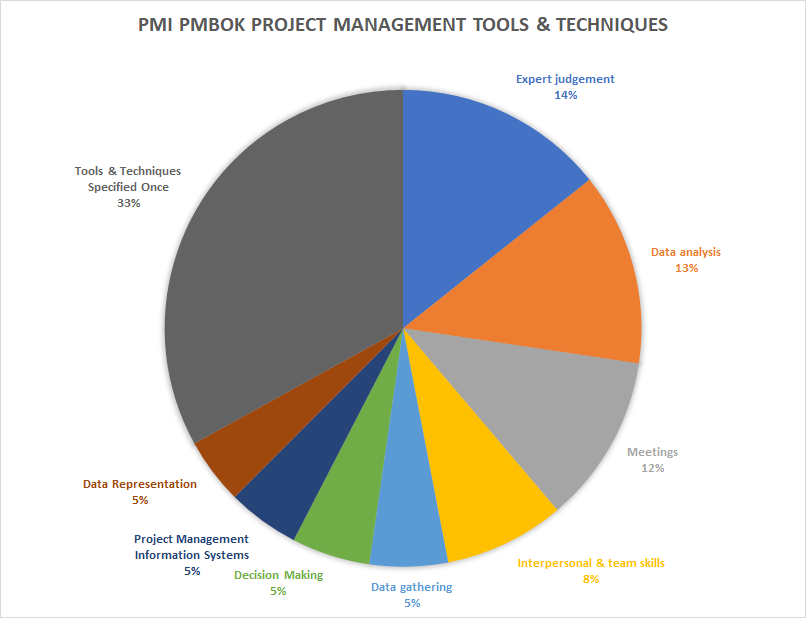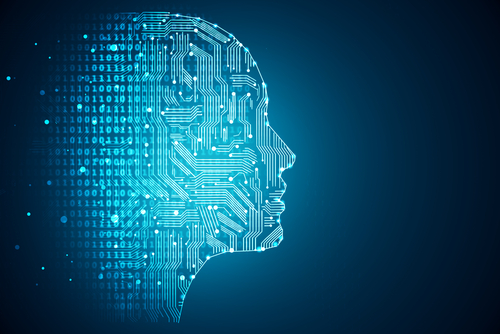Will AI Replace Project Managers? What it is, How it will Disrupt PM tools & techniques and 3 Ways You can Prepare
Maybe it’s a coincidence. Maybe it’s because I recently (finally) got out to see Terminator: Dark Fate. Maybe it’s the recent PMI Pulse of the Profession report, AI Innovators: Cracking the Code on Project Performance (2019) I read. Or maybe it’s just my favorite news website filtering the articles it sends my way. In any case, “AI” has been on my mind a lot, lately. And, since project management is my trade of choice for earning a living, I can’t help but wonder: Am I—are PMs—at risk of being replaced by a robot?
To answer this, we will need first to clarify what is meant by “AI”— is it a Terminator T-3000 or an Excel worksheet with macros? Then, we will identify the most frequently-used tools and techniques PMs use to manage projects (according to The Project Management Institute’s PMBOK–Sixth Edition), and assess how AI could disrupt them. We will wrap up with 3 things PMs can do to prepare as AI technologies make their way into the PM role.
What is “AI”
According to The WIRED Guide to Artificial Intelligence, the term Artificial Intelligence was thought up by The Dartmouth Summer Research Project in 1956; and is defined as:
Artificial Intelligence
“The development of computers capable of tasks that typically require human intelligence.”
By this definition, AI has been with us for a while, now. Have you ever used MS Outlook rules to automatically move emails with specified words into an Outlook folder? According to the definition above, this is AI: A computer (Outlook) is completing a filing task that a human might otherwise be required to do. How about keeping track of project schedule impacts as a result of dependent tasks? Sure–MS Project has been doing this for us for years.
But, when we say “AI”, we usually mean Machine Learning, which WIRED defines as:
Machine Learning
“Using example data or experience to refine how computers make predictions or perform a task.”
Using this definition in the context of the project manager’s role, it is not unreasonable to be concerned that AI could, potentially, replace PMs by gathering project data and acting accordingly based on patterns it sees. If, for example, a “robot” were to deduce that, to complete a task on time, the resource assigned to it would need to be allocated at 200%, it could change the project status from green to yellow automatically, send an advisory email to stakeholders, and send a request to a resource manager for an additional resource with a similar skillset.
Could a robot completely replace a project manager, though?
What are the tools and techniques PMs use most—can AI replace them?
To understand whether AI could replace PMs, we need first to identify the processes and tools PMs use most often to ply their trade. Then, we need to ask, Can AI replace these?
PMI’s Project Management Body of Knowledge PMBOK provides guidance on the tools and techniques project mangers should use for project success. Of the 65 tools & techniques it recommends, the three it specifies most often are Expert Judgement, Data Analysis and Meetings.

Expert Judgement
PMI defines Expert Judgement as, “a technique in which judgment is provided based upon a specific set of criteria and/or expertise that has been acquired in a specific knowledge area, application area, or product area, a particular discipline, an industry, etc. Such expertise may be provided by any group or person with specialized education, knowledge, skill, experience, or training.”
Can a machine exercise expert judgement? It can if it has been taught what expert judgement is—that is, if a set of criteria and/or expertise has been provided by SMEs per the definition above. Machines can learn to exercise expert judgement if experts teach them what that is.
Of course, this doesn’t take into consideration “gut” feelings; and, while predefined criteria and/or expertise may be relied upon in many situations, there are times when we toss the rule book and go with our instincts. Intuition is something AI can’t replace (yet).
Can AI replace PMs when it comes to expert judgement? In many cases, it can if it’s taught how to—assuming the investment required to do so can be made viable.

Can a machine exercise expert judgement? It can if it has been taught.
Data Analysis
Data analysis is, well, just that. It’s examining data that have been gathered, and applying logical reasoning to evaluate them to reach a conclusion or finding. PMs analyze data for everything from work performance, to the completion status of deliverables, to cost data as part of cost-benefit analysis.
Machines do a better job of crunching data than their human counterparts: They can analyze more data in less time and with greater accuracy and objectivity. Sure, we can generate a range of estimates by manually doing the math using two standard deviations; but a machine can do it more efficiently (in fact, we have an widget for this on the Professional Services Plus site). This is what they do.

PHILLIP KHAIAT, ADVANCED COMPUTER SYSTEMS
“Two areas that come to my mind [when considering the potential of using AI in project management] are:
- Using AI to analyze data from past projects in order to identify risks and potential pitfalls in the planning of new projects.
- Using AI to help with rebuilding optimized leveled project schedules as the inevitable changes to deliverables and resource availability happen during project execution (have you ever tried doing this with MS-Project?).”
Can AI replace PMs when it comes to data analysis? Absolutely. That said, the analysis is only as good as the data provided—garbage in, garbage out as a adage goes. We can use Watson to analyze work performance; but, if a project team member has entered a project number for another project on a time sheet, it’s all for naught as the results of the analysis of those data will be inaccurate.
Meetings
PMs use meetings, along with other verbal and non-verbal cues to communicate with the project team and stakeholders when directing and managing project work. The initial meeting with the project sponsor, for example, is a critical meeting in which the PM and sponsor clarify the business vision (for more on business vision, see my article, “Beyond Navel Gazing“).
Note-taking applications, such as Google Keep and Evernote can take meeting notes (although clean-up by a human is usually required); and AI technology is available to issue and track action items. It’s no stretch to see how Natural Language Processing (NLP) applications, such as Nuance could be used to obtain project data during meetings using verbal commands such as, “What is our currently estimated budget at project completion?”

It’s the “other verbal and non-verbal cues” bit that a machine cannot (yet) do well.
From a meeting facilitation perspective, AI can do most things a PM does, albeit with less accuracy at this stage. However, it’s the “other verbal and non-verbal cues” bit that a machine cannot (yet) do well. Meetings are often used as a venue for persuasion and negotiation—which is less about what is being said and more about how it’s being said. Moreover, despite the best-laid plans of mice and men, meetings sometimes run off-script, leading to unpredictable, chaotic discussions that AI may not be able to keep up with (although it may be able to learn).
Could AI replace project managers?
To some degree, yes…
Using the top three PM tools and techniques most-frequently specified by PMI’s PMBOK as a bellwether, it’s not difficult to see how machines can be taught to exercise expert judgment (at least in theory, given the required investment in teaching them what expert judgement is), analyze data and facilitate (but not necessarily manage) meetings. Project managers that manage solely from keyboards and by strictly adhering to prescriptive processes, take note.
Note that, while we have focused on the top three tools and techniques most-frequently specified in the PMBOK, which comprise 39% of to total specified, Data Gathering, Decision Making, Project Management Information System and Data Representation—stuff machines do very well—comprise 20% of the total specified. Further, if we were to look at how AI addresses the 33% of tools and techniques that are specified only once (beyond the scope of this article), we might find an even greater probability of PM redundancy.
…but not completely
The reality is that machines cannot supplant the entire PM function for two reasons:
- Their accuracy is still largely dependent on accurate data input by humans (e.g. effort estimates/actuals); until functional managers tie data input accuracy to performance rewards, this will continue to be a limitation.
- Lack of soft skills: Interpersonal and Team skills are the fourth-most-often-specified tools and techniques. The ability to effectively negotiate with stakeholders or to help an under-performing resource improve through empathy, support and motivation are things machines can recommend, but not do.

ZIN-EDDINE KORTEBI, ZEK CONSULTING INC.
“To be successful, PMs need to know how to deal with critical situations in a project where you have to negotiate or compromise with the client or the project team.”
Rather than replacing PMs, technology will continue to augment the PM function by handling low-return tasks such as taking meeting notes, aggregating data and looking for patterns that indicate the high-return tasks PMs need to focus on. This is the key: AI is a tool to be used by PMs; not a replacement for a PMs.
…and not directly
Augmentation of the PM role with AI will enable PMs to manage more projects simultaneously. If the rules of supply and demand have any merit, it stands to reason that fewer PMs will be required. As a result, PMs adept at managing multiple projects across multiple functional groups within an organization or even across multiple organizations will continue to be in demand (for now); while those who lack these skills will not.
3 things PMs can do to prepare as AI technologies are adopted into the PM role
Oliver Yarbrough, PMP, is a speaker, author, trainer, and leading expert in project management. Recently, I attended his Greycampus webinar, Artificial Intelligence: How it will impact Project Managers in which he discusses the impacts AI will have on the project management role. I asked Oliver for his thoughts on what PMs can do to prepare for the expected disruptions from AI. Here is what he had to say:

OLIVER YARBROUGH, M.S., PMP – PUBLIC SPEAKING · LEADERSHIP DEVELOPMENT · EXECUTIVE COACHING
- “First, project managers must familiarize themselves with Artificial Intelligence and Machine Learning. The reason being companies will need project managers who are knowledgeable about AI, so they can manage their AI deployments.
- Second, project managers need to get comfortable communicating with AI-powered machines. This is important because it will require project managers to take into consideration the needs of their AI stakeholders.
- Last, but not least, project managers will have to get in the habit of reinventing themselves every 2-3 years. This is critical because changes in technology will continue to disrupt the old ways of doing things.”

Victor W. von Buchstab is a Project Management Consultant at Professional Services Plus Inc. He has been managing programs/projects and motivating teams to perform in rapid-paced, results-oriented environments for over 20 years. You can find Victor on LinkedIn.




Loved this article Victor.
Thanks, Arun.